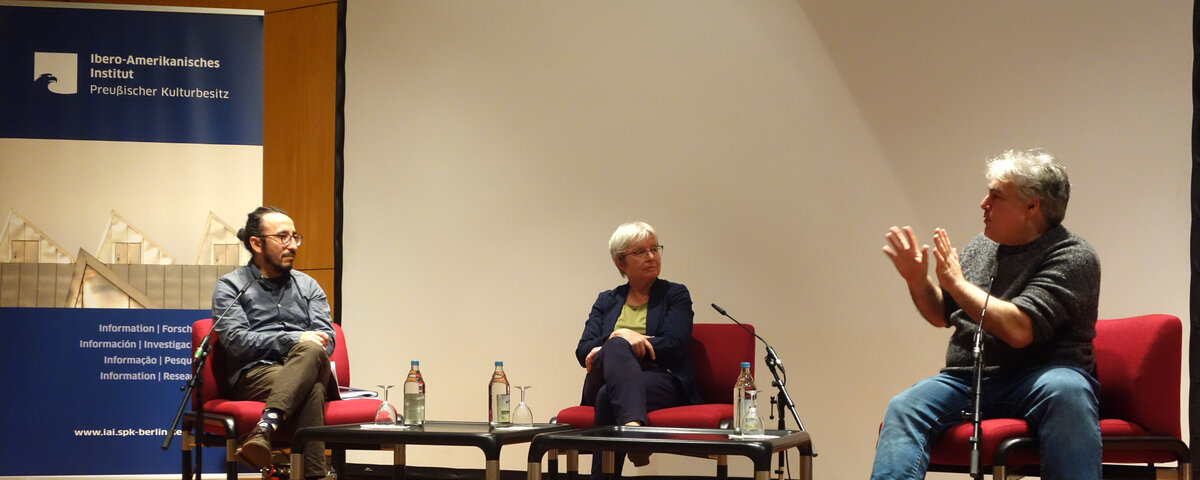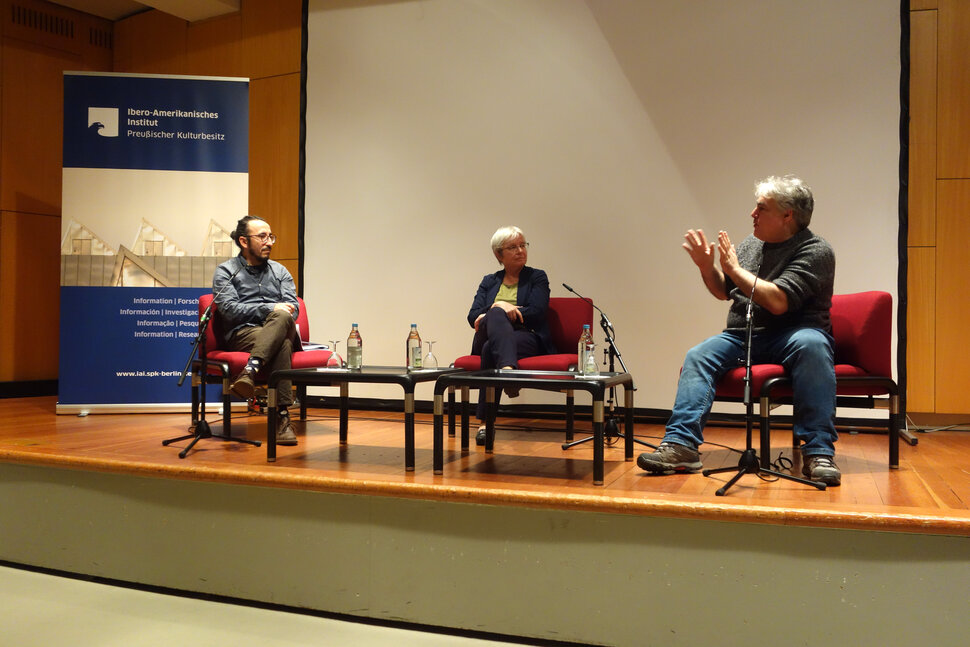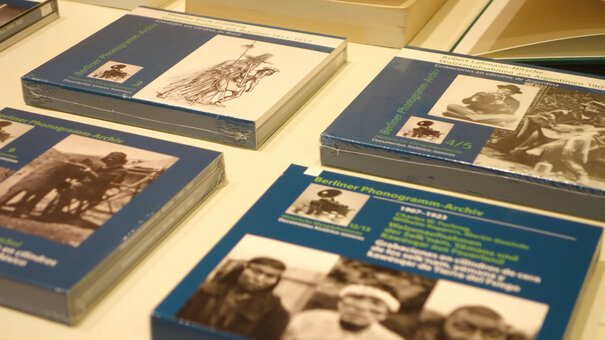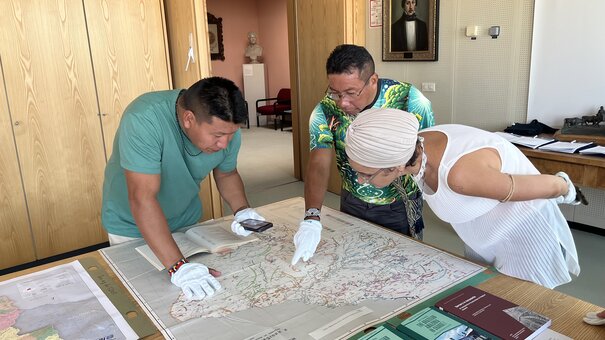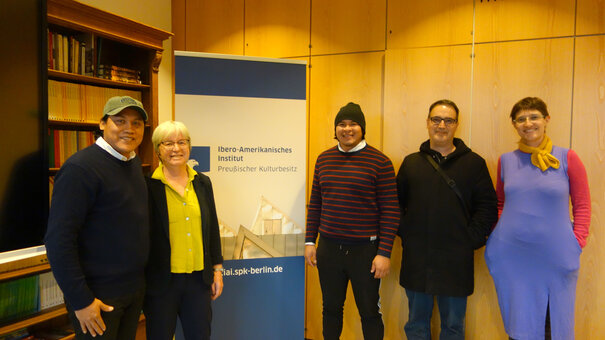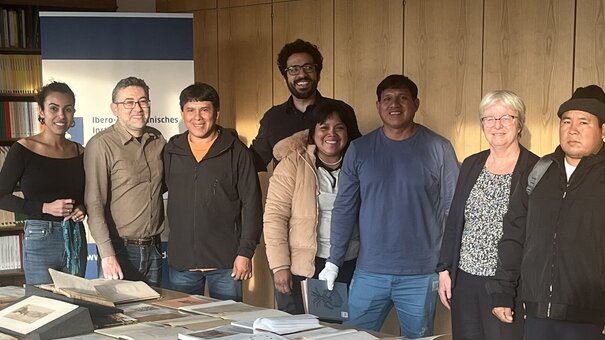To celebrate the 125th anniversary of the Berliner Phonogramm-Archiv, the Ibero-Amerikanisches Institut (IAI) hosted the event "Sharing Sound Archives: Latin American Wax Cylinder Recordings of the Berliner Phonogramm-Archiv in the Digital Collections of the Ibero-Amerikanisches Institut" on October 7, 2025. The focus was on historical wax cylinder recordings made with phonographs between 1905 and 1934 in Argentina, Brazil, Chile, Mexico and Peru in order to document indigenous music cultures. The wax cylinders are among the oldest surviving recordings of indigenous ritual chants and music from these countries.
The event highlighted the social significance of these unique sound documents from the Berliner Phonogramm-Archiv today and how they are connected to other collections at the Ibero-Amerikanisches Institut (IAI, Ibero-American Institute) and the Ethnologisches Museum (EM, Ethnological Museum). Since the beginning of October, the wax cylinder recordings – supplemented by comprehensive contextual information – have been available globally in open access in the IAI's Digital Collections. The basis for this are six CDs that were published between 2003 and 2017 in the series "Berliner Phonogramm-Archiv. Historische Klangdokumente" series published by the Ethnologisches Museum (external link, opens in a new window) – three of them in collaboration with the IAI.
In their lectures, Barbara Göbel (IAI), Maurice Mengel (Berliner Phonogramm-Archiv / Ethnologisches Museum) and Walther Maradiegue (Universität Bonn (external link, opens in a new window)) presented the historical recordings from Latin America and emphasized their scientific and social significance. Maurice Mengel introduced the eventful history of the Phonogramm-Archiv, described the challenges of managing this complex collection and highlighted the potential of digitization. Barbara Göbel used the example of wax cylinders from Latin America to point out the need to promote the cross-disciplinary networking of collections through institutional cooperation. She emphasized the importance of the IAI's scientific networks for researching the collections and the exchange with the indigenous communities in the regions of origin. Walther Maradiegue has headed the DFG Emmy Noether Junior Research Group (external link, opens in a new window) "Archival Sovereignty: Indigenous Digital Media, Language Revival and Land Defense in the Andes" at the Universität Bonn (external link, opens in a new window) since this year. He presented research findings from a research project carried out jointly with Gisela Cánepa (Professor of Cultural and Social Anthropology at the Pontificia Universidad Católica del Perú, PUCP (external link, opens in a new window)) on the wax cylinder recordings made by Hans Heinrich Brüning in the Peruvian region of Lambayeque between 1910 and 1925 and pointed out the significance of their recirculation for the contemporary reception and performance of local Peruvian musical culture.
The documentary short film "The Overflowed Archive" presented afterwards, which was produced in collaboration with Gisela Cánepa and the PUCP's Visual Anthropology Working Group, impressively demonstrated how the return of the wax cylinder recordings to Peru enables local re-appropriation processes of this global cultural sound heritage.
The event highlighted the importance of cooperation within the Stiftung Preußischer Kulturbesitz (external link, opens in a new window) (SPK, Prussian Cultural Heritage Foundation) and especially with institutions in Latin America in order to connect collections, make them visible and digitally accessible and thus improve social participation overall.
